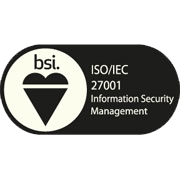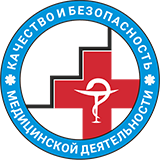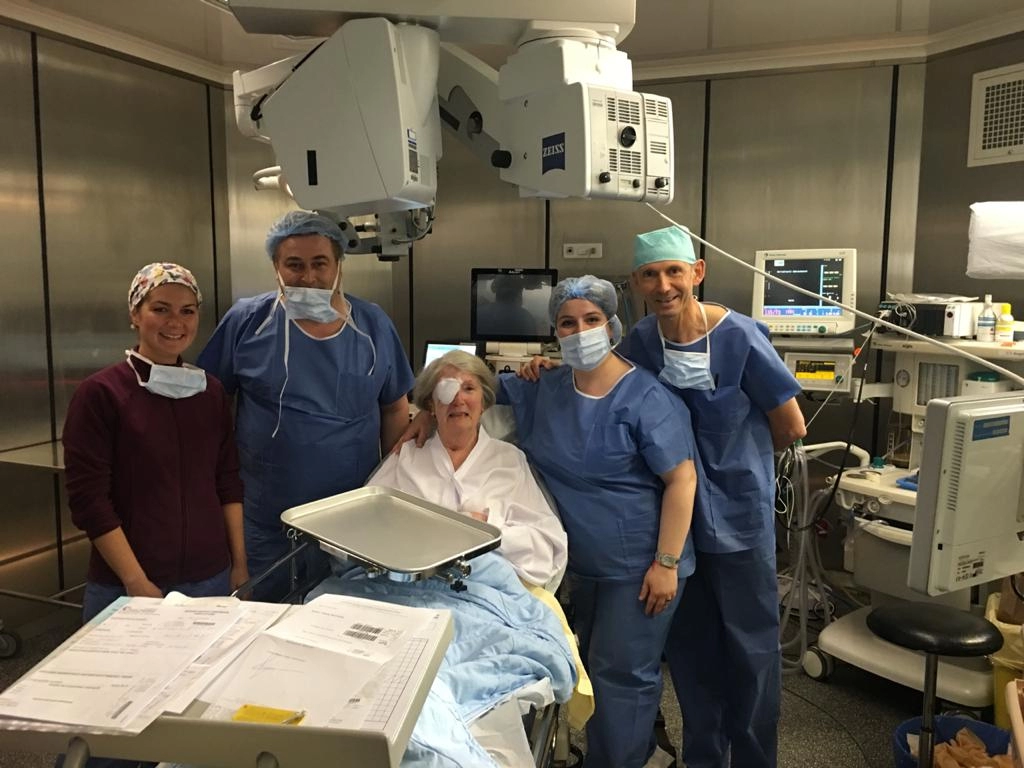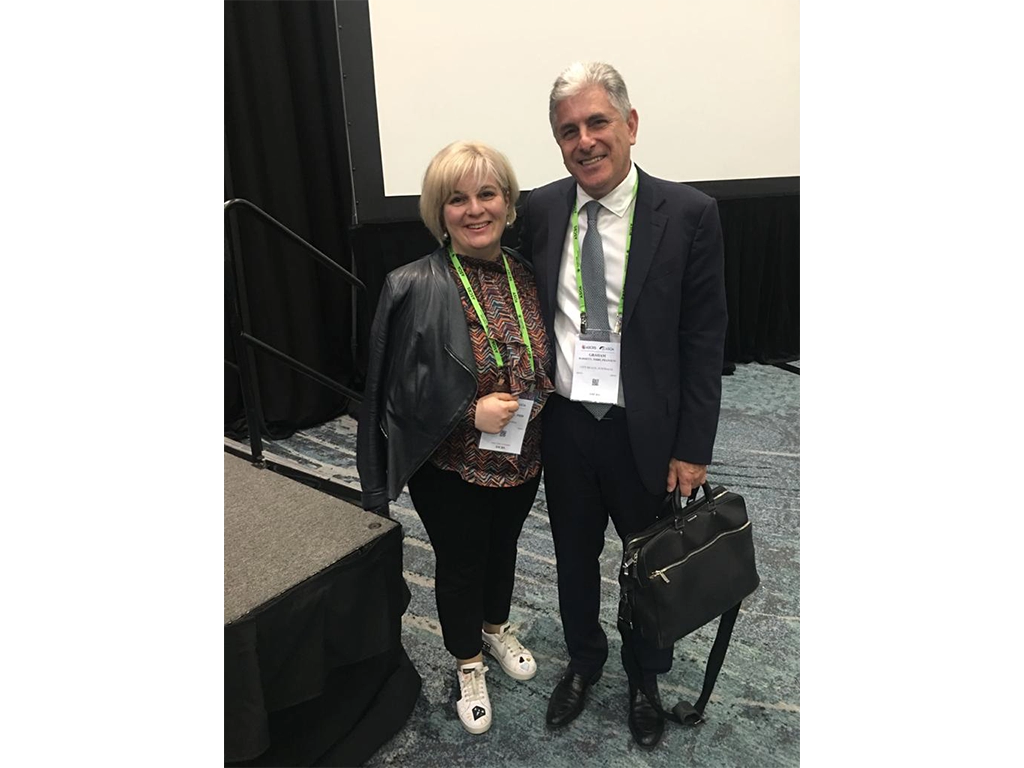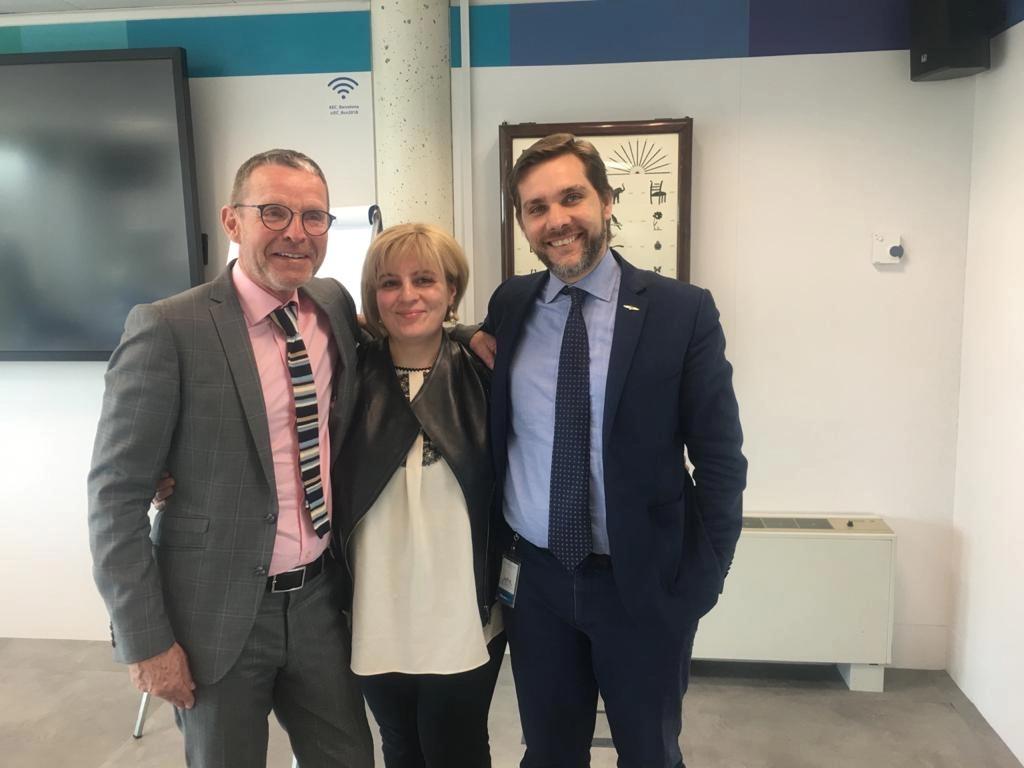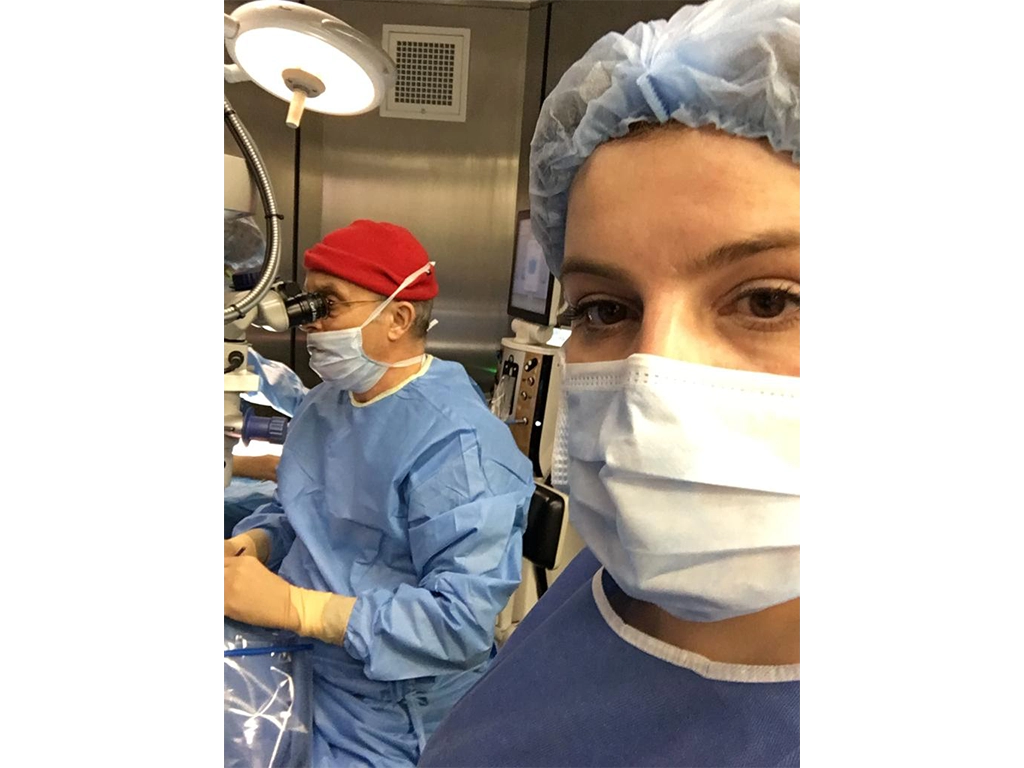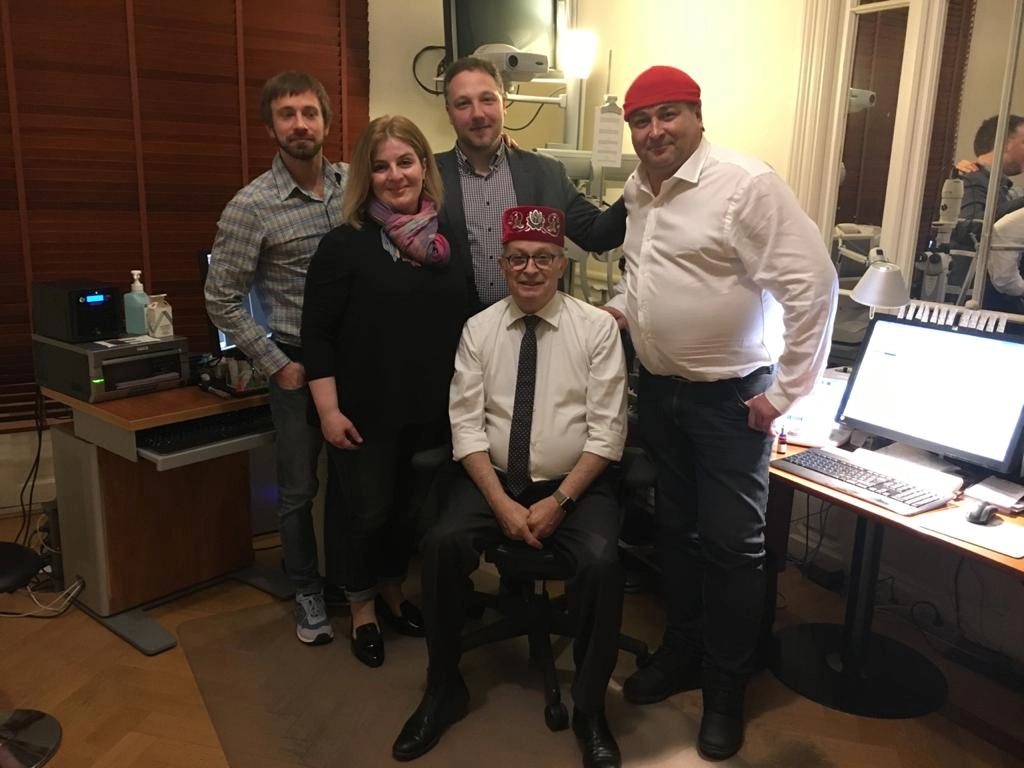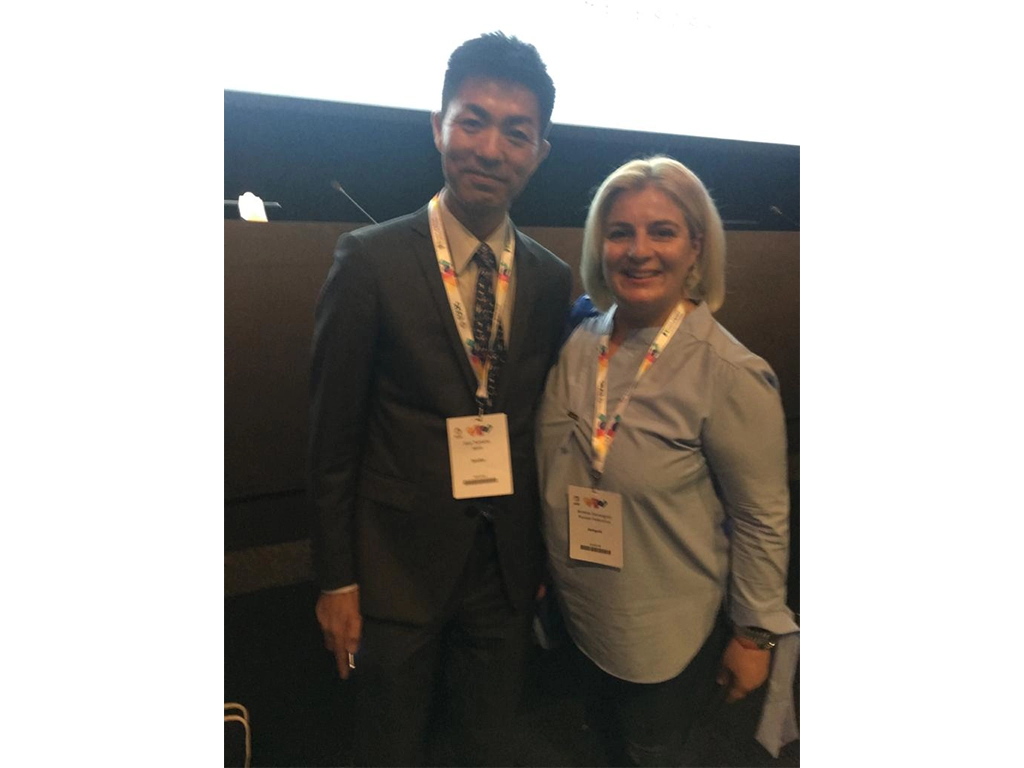Lasik Laser Vision Correction
Lasik eye surgery is a safe procedure, which is currently the most popular type of surgical procedures performed on the organs of vision. Every year in more than 50 countries around the world about one million such surgeries are performed, after which patients' visual acuity significantly increases.
Receive a consultationUsing the excimer laser, the surgeon reshapes the cornea, correcting the focus of the eye's optical system.
The procedure takes no more than 10-15 minutes and does not require anesthesia or hospitalization. Rehabilitation takes 1 to 3 days, after which you can return to your normal rhythm of life.
Indications
Lasik laser vision correction is prescribed in cases of:



Surgery is required for people who cannot wear glasses or contact lenses because of their profession or individual intolerance. It allows patients to get rid of vision problems and eliminates the cosmetic problem of having to wear glasses.
Contraindications
There are a number of absolute contraindications and time limitations to Lasik vision correction. The surgery is completely ruled out for people, who:
- suffer from autoimmune diseases - arthritis, collagenosis;
- have immunodeficiency conditions of a primary and secondary nature;
- have systemic illnesses that impair the healing process;
- have only one eye;
- have corneal thinning up to 450 microns or less;
- have glaucoma, cataracts or keratoconus.;
- have a herpes virus infection;
- are after retinal detachment surgery.
The laser procedure must be postponed until the patient's condition has improved if the patient has:
- diabetes;
- pregnancy or lactation;
- a pacemaker fitted;
- mental health problems;
- inflammatory disease of any tissues of the eye;
- disorders of lacrimal function;
- corneal scarring;
- changes in the ocular fundus and retinal tissues.
An ophthalmologist makes the final decision about the possibility of surgery.
You can find out more about the Lasik method by telephone.
Diagnostics
Some blood tests, which are standard for any surgical procedure, must be taken before the surgery:
- for the absence of HIV;
- Wasserman test;
- HBS, HCV antigens.
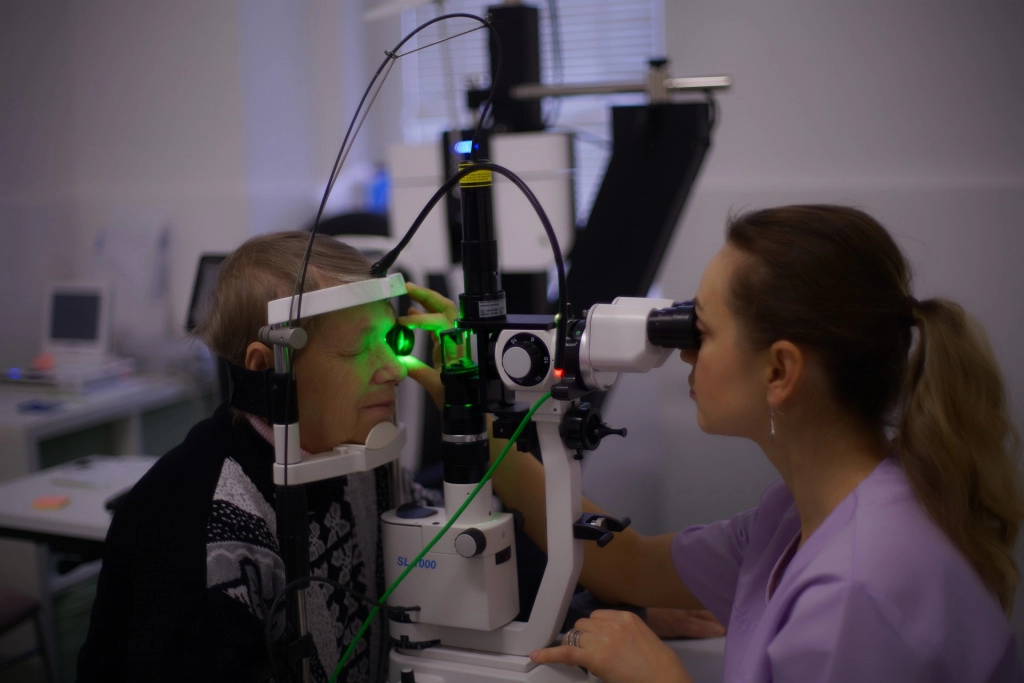
Since the cost of medical error during Lasik vision correction is too high, a complete ophthalmological examination must be carried out before the procedure. It includes:
- determination of visual acuity with and without glasses;
- an autorefractometry to determine the refractive power of the cornea and the lens;
- measurement of corneal thickness is one of the most important tests, the result of which determines the possibility of correction;
- non-contact measurement of intraocular pressure with a directed jet of air;
- a keratometry or determination of the corneal radius;
- a perimetric examination of the retina and nerve fibers to assess the quality of the signal pathway to the brain;
- a biomicroscopic examination of the visible parts of the eye with an optical lens and slit lamp;
- an ophthalmoscopy - examination of the fundus to detect retinal defects;
- an ultrasound examination of the tissues of the eye to detect structural abnormalities and pathologies.
The results of these examinations allow the ophthalmologist to prepare for Lasik laser vision correction.
Preparation before laser correction
Depending on what optical aids you are currently using, the timing of the start of training is determined. Contact lenses should not be worn for at least one week before an ophthalmic diagnosis, as they distort the shape of the cornea. If you use corrective night lenses, you must stop using them at least three months before the examination. In addition, you should:
Stop taking anticoagulant medication
Eliminate any alcohol in any form or quantity
Women should remove artificial eyelashes
Wash and rinse your eyes thoroughly, remove all make-up from your skin and eyelashes, avoid perfumes and eat a light breakfast
What should you take with you?
- test results and other medical records;
- a cotton T-shirt with a wide collar;
- sunglasses with dark lenses;
- moisturizing eye drops recommended by your ophthalmologist.
It is advisable to bring a companion with you - someone who will help you drive home after the surgery and look after you for the first 24 hours.
Information about the procedure
The surgery takes place in the following order:
If Lasik laser vision correction is necessary for both eyes, the above steps are repeated for the second eye.
After the surgery, you should rest with your eyes closed for at least 40 minutes. The doctor then examines the operated eyes and tells you how to take care of them to avoid complications. After about an hour you can go home.
Rehabilitation
-
In the first 24 hours after the surgery, it is advisable not to remove dark glasses, even at night, so as not to accidentally touch your eyes and move the corneal flap out of place. You should sleep only on your back, not on your side or stomach.
-
The next day you can read books, watch TV and use the computer a little at a time. If there is a feeling of eye fatigue, you should immediately stop exercising. The recovery period can last about a month.
-
Do not touch your eyes for 5 days. Washing should be avoided so that water does not get into the eyes. Use special drops prescribed by your ophthalmologist as care. Wear dark glasses when outdoors to protect your eyes from dust. Reduce the amount of liquids you consume.
-
For two months, avoid thermal water procedures such as hot baths, saunas and steam baths.
-
Do not take hormonal contraceptives for three months.
Be sure to visit your ophthalmologist on the days scheduled for that purpose.
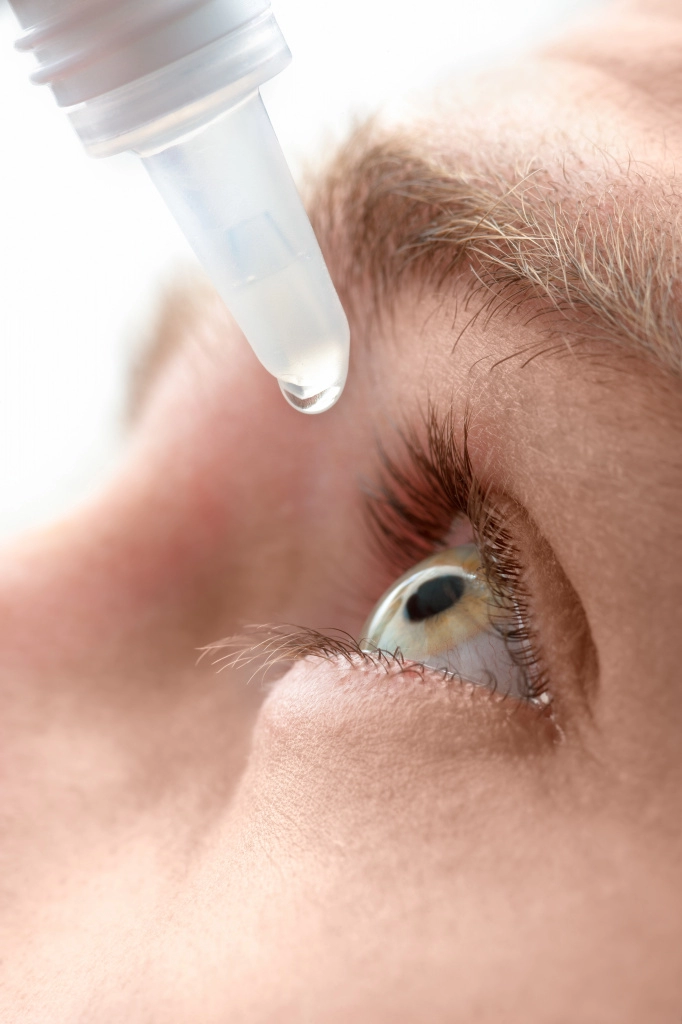
Medical complications
Lasik vision correction can lead to a number of negative consequences if the rules of eye care are not followed. For example, such consequences as:
- development of dry eye syndrome;
- visual deterioration;
- development of photophobia;
- increase in intraocular pressure;
- swelling of ocular tissue;
- infection and the development of an inflammatory process;
- pathological reduction in the thickness of the cornea;
- "night blindness" - impaired vision at dusk and in low light.
In order to avoid complications, you should follow your doctor's recommendations and visit your doctor for post-operative check-ups on time.
Advantages of our clinic
Many clinics in Moscow offer Lasik operation, but only we have a number of important conditions for patient safety. There are strong arguments for choosing the "Medicine" clinic:
- more than thirty years of the medical establishment's existence;
- a long-standing JCI accreditation, which serves as proof of the high quality of medical services;
- a "five-star" category according to the criteria of the European Foundation EFQM Awards;
- state-of-the-art laser equipment that ensures maximum patient safety and high quality of operations;
- 15 years' experience and highest qualification as an ophthalmic surgeon, membership of international professional societies.
Specialists
The high professionalism and long-term experience of our ophthalmologists is supported by continuous training, regular internships in leading world clinics and international certificates. Our leading ophthalmic surgeon has more than 4,000 successful surgeries under her belt. Many famous Russians - "celebrities" of theater and cinema, politics and business have chosen our ophthalmologist for the restoration of their vision and they recommend you to follow their example.
Our doctor, Armine Seyranovna Gevorkian, is a world-class specialist. She has over 4000 surgeries under her belt, including collaborations with some of the best ophthalmic surgeons in the world! Dr. Gevorkian is a consummate specialist in her field. This is confirmed by many internationally recognised certificates.
Do you need more information?
Do you need help in choosing a doctor? Our administrator can help you choose a specialist who is right for you!
Our clinic
Contact details and address
JSC "Medicine"
Moscow, 2-nd Tverskoy-Yamskoy Lane, 10
Mayakovskaya
Belorusskaya
Novoslobodskaya
Information desk. Open 24 hours a day.
from 8 a.m. to 9 p.m. Mo-Fr
from 9 a.m. to 7 p.m. (Sa) / from 9:00 to 15:00 (Su)






